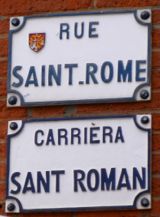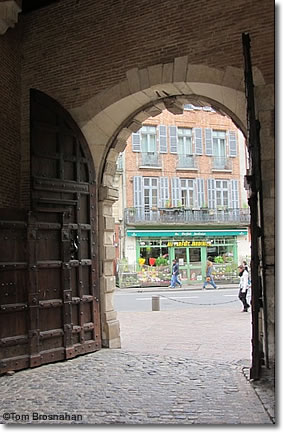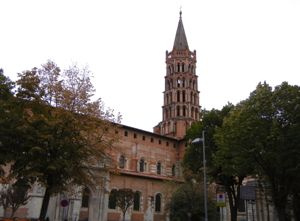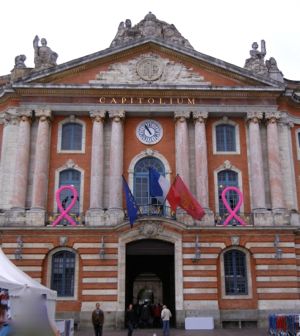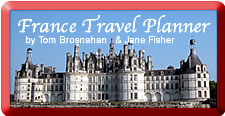 |
Toulouse, France Guide | |
| Known for its pink brick, Toulouse has a long history and a vibrant present. | ||
|
|
|
Toulouse, the city of pink brick on the banks of La Garonne, 678 km (421 miles) due south of Paris, is France's high-tech center. It is also a city with a long history, and a major university town, with over 100,000 students. Its location on the Garonne and the Canal du Midi has made it a center of commerce between the Atlantic and the Mediterranean. Archaeology indicates that Toulouse existed as early as the 8th century BC. It was a major city of the Roman Empire, based on its strategic location. It was also an early Christian city. Saint-Sernin was martyred here in about 250 AD, and the Baslica of Saint-Sernin was built iin the 5th century to house his relics. Over the centuries Toulouse continued to be an important center and was the site of numerous battles, and many changes in government, from the Visigoths to the Franks to Charlemagne. By the 12th century the city was governed by a group of capitouls, who administered the city until the French Revolution. They gave their name to the beautiful Capitole building, which still serves as the city hall. Religious growth continued, with the Jacobins and Augustins both active in the city. Today Toulouse is still known for its many historic churches and other religious buildings. Modern Toulouse is perhaps best known for Airbus, one of the world's largest aircraft manufacturers. The region is also home to other high tech industries, and a number of museums devoted to airplanes and aerospace. For those who prefer slower forms of transportation, Toulouse is also a major stop on the famous Canal du Midi. Excursion boats are available to explore this wonderful waterway. Toulouse's old town, with its pedestrian streets and impressive architecture, makes it a fascinating city to explore. There are a number of historic hôtels particuliers, or private mansions, that can be seen while wandering the streets. An abundance of hotels and a variety of squares with restaurants and cafés provide plenty of choices for today's visitors. There is a lot to see and do, and a helpful tourist office in the center of town which can provide maps and guides. Finally, Toulouse is also known for violets, which have become a symbol of the city. Flowers, perfumes, and sugared violets are for sale all over the city, and the lovely purple flowers abound. You may notice street signs in both French and Occitan, the traditional language of the troubadours. The language is enjoying somewhat of a revival, and it was important in the history of Toulouse. Toulouse is also a good gateway to other sites of touristic interest. It is just 245 kilometers (152 miles) from Bordeaux, about a two and a half hour drive; and it takes just about an hour to drive the 93 kilometers (58 miles) to the walled city of Carcassonne, with much of the route along the scenic Canal du Midi. Considered a gateway to the Pyrénées, Toulouse is less than two hours (174 kilometers/108 miles) from the religious center of Lourdes, and just slightly farther from Pau.
|
|
Above, A lovely doorway in Toulouse.
|
